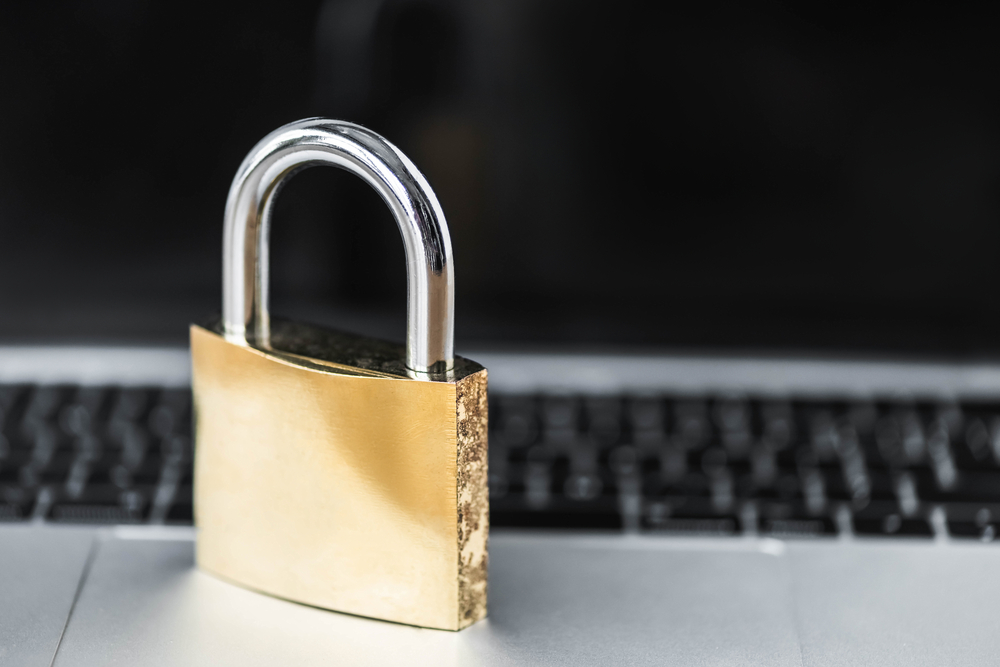Let’s start with an example from Dr. Safety, who is knowledgeable about both data privacy and data security.
Dr. Safety has an orthodontic clinic that operates under HIPAA standards for keeping her patients’ data private. She collects sensitive information like birth dates, health records, and payment information that could be misused if it gets into the wrong hands. So, she has policies in place that protect her patients’ privacy — like internal access levels for her staff, and a HIPAA rights sheet that all her patients read and sign.
In addition, Dr. Safety is also concerned with data security (she doesn’t want her patients’ information to be tampered with or stolen), so she uses protective measures like data encryption for files and multi-factor authentication for the softwares her office uses. These are her security measures.
Why is it important to understand the two? For one, there are compliance laws in place that can impact your business (with a lawsuit, for example) if private data is leaked. A business can also suffer from downtime or ransom demands if their security isn’t up to snuff.
Knowing the definitions and differences is important for understanding how they work, what they each mean to your business, and for assessing your risk in the event that one or the other sustains a hit.
What is Data Privacy?
Privacy is all about using, storing, and accessing data responsibly. Data privacy is concerned with compliancy and consent from the owner of their sensitive data (think patients, customers, website users, clients, etc.). Privacy is less about protecting data from threats than it is about using it responsibly. Think of it as the curtain or shade on your office windows — they’re used to keep peeping eyes at bay, but aren’t really used as a security measure to ward off theft or harm.
What Your Business Should Know About Data Privacy
There are several data privacy laws that can apply to you and your business, and violating them can result in massive fines, bad press, and even business closure. You’ve likely heard of the big ones: GDPR (the European Union’s data privacy law) , HIPAA (the Health Insurance Portability and Accountability Act), and PCI (Payment Card Industry Data Security Standard). If a business fails to take measures to protect the private data they collect under these laws, it can lead to big consequences.
This is part of the reason you see so many privacy agreements and messages throughout your daily life. Think about it: when you download a mobile app on your smartphone, you’re probably prompted with a privacy agreement before the installation begins.
Or how about a cookie message when you visit a website?
“This website stores cookies on your computer. These cookies are used to collect information about how you interact with our website and allow us to remember you. To find out more about the cookies we use, see our Privacy Policy.”
These are both examples of businesses doing their best to comply with data privacy standards and letting their customers or users know how they’ll use and/or protect their information.
What is Data Security?
Data security is all about protecting private data from malicious threats — think “digital locks” to keep out cybercriminals or malware. It’s primarily focused on preventing unauthorized access that could result in a breach or theft. The protective measures that a business puts in place to protect their digital assets from harmful events (such as human error or unauthorized users) — these are data security measures.
What Your Business Should Know About Data Security
First of all, you should know that breaches really do happen. It might feel like your business is too small to be targeted by cybercriminals, when in fact fast-growing small businesses tend to suffer most from digital attacks because they lack the preparative measures or resources to clean them up.
So are you at risk? The short answer is yes.
Cyber intrusions take many shapes and forms — some can happen under the radar for years (like this example of a Dell client that was being hacked for two years without knowing it), while others make themselves known immediately and jump in with demands for ransoming the information they’ve stolen. On average, cyber attacks cost businesses over $4 million dollars each in 2021 (the highest amount ever reported). This makes cybersecurity arguably more important now than ever.
What measures can a business take to improve their data security? There are lots of items to pull from a cybersecurity menu, and a multi-layered approach is going to offer more complete protection. Is there a 100% guaranteed way to prevent an attack? Unfortunately, no. But adding these measures to your security plan is going to help your business mitigate the risk:
- Data encryption
- Firewall implementation
- Network security
- Access controls
- Multi-factor authentication
- Spam prevention
- Content filtering
How Can Tekmanagement Help with Both?
With all the legalities and risks on deck when it comes to protecting privacy and data, it’s critical that you understand the implications of not addressing both items. Our Tekmanagement team is experienced in risk assessments (to determine your business’s potential exposure to threats), as well as monitoring and reporting in the event that something suspicious pops up on the radar. We also provide spam filtering, malware protection, and regulatory audits that are required for HIPAA or PCI compliance.
If you have questions about where to start, the best thing to do is ask. Our Tekmanagement team has the tools, skills, and decades of digital experience to give you a starting point on developing your data privacy and data security plans — and staying well clear of the fines and recovery costs that can rear their ugly heads when your business isn’t protected.


